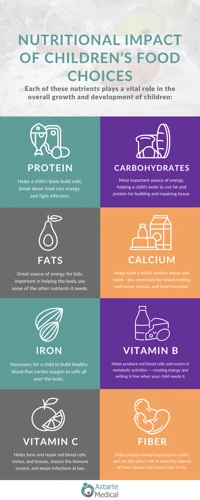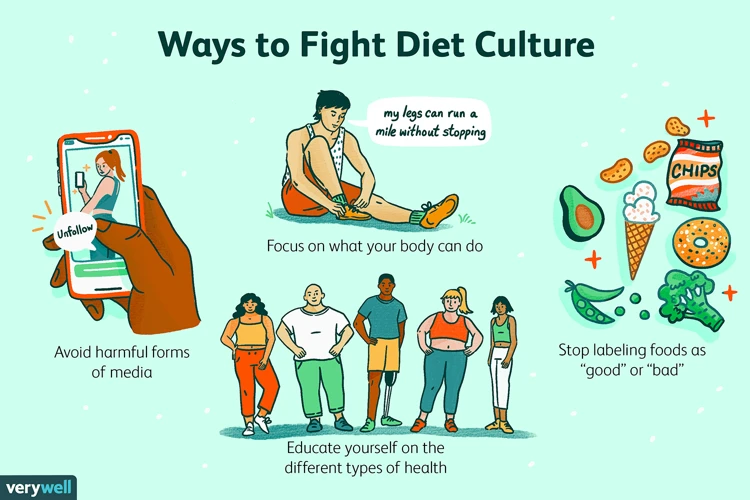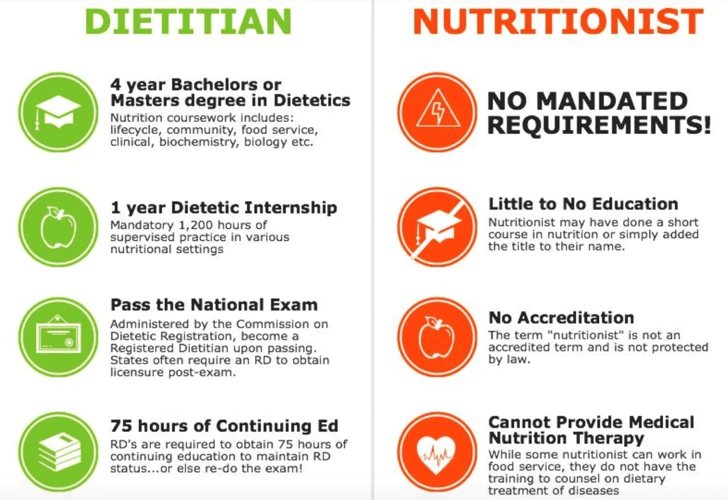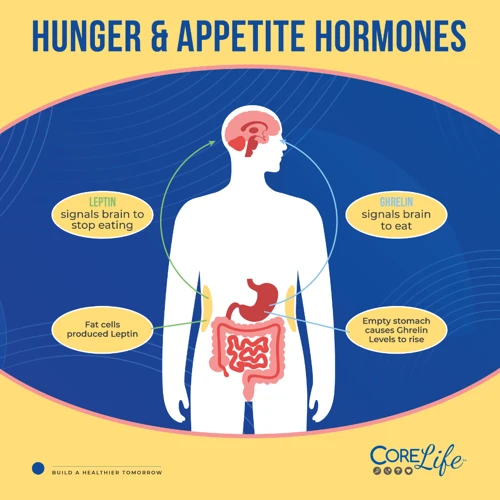Introduction: The Importance of Nutritionists in Weight Loss

Maintaining a healthy weight is important for overall health and can lower the risk of various health conditions. However, losing weight can be a challenging process and requires a lot of commitment and dedication. This is where the role of a nutritionist comes in. A nutritionist is a qualified professional who specializes in providing dietary advice and guidance to individuals who want to achieve their weight loss goals in a healthy and sustainable manner.
A nutritionist plays a vital role in weight loss by developing personalized meal plans for clients and monitoring their progress. They also provide education and support to help individuals adopt healthier eating habits and make positive lifestyle changes. The importance of working with a nutritionist during a weight loss journey cannot be overstated, as they can help individuals achieve their goals in a safe and effective way.
In this article, we will discuss the qualifications and roles of a nutritionist, the benefits of having one in your weight loss journey, and common misconceptions about working with a nutritionist. Additionally, we’ll highlight what to expect when working with a nutritionist and how they can help manage hunger and cravings during the weight loss process.
What is a Nutritionist?

When embarking on a weight loss journey, seeking advice and guidance from a professional can make all the difference. This is where nutritionists come in. They are highly trained experts who specialize in helping people achieve their health goals through proper nutrition. But what exactly is a nutritionist and what qualifications do they have? Let’s dive deeper into understanding the role of a nutritionist in a weight loss plan.
Their Education and Qualifications
Nutritionists are highly educated and qualified professionals who specialize in the field of nutrition. They have completed a Bachelor’s or Master’s degree in Nutrition, Dietetics or a related field. Many nutritionists also have additional certifications or licenses to practice, such as a Certified Nutrition Specialist (CNS) or a Registered Dietitian Nutritionist (RDN).
Their education typically includes:
- Extensive coursework in human anatomy, physiology, and biochemistry
- Training in nutrient metabolism and how different nutrients affect the body
- Studies in the science of food, including food safety and preparation techniques
- Instruction on how to create personalized meal plans to meet the unique nutritional needs of clients
In addition to education, nutritionists also:
- Stay up-to-date with current research and developments in the field of nutrition
- Attend regular professional development courses and seminars to enhance their knowledge and skills
- Abide by ethical and professional standards set by organizations such as the Academy of Nutrition and Dietetics or the American Society for Nutrition
It is important to note that the terms “nutritionist” and “dietitian” are often used interchangeably, but there may be some differences in their qualifications and training depending on the country they practice in. However, in general, both nutritionists and dietitians have extensive education and training to provide expert nutrition advice and support for weight loss and other health goals.
Their Role in Weight Loss
Nutritionists play a crucial role in weight loss journeys. They provide guidance and support to individuals looking to lose weight and improve their overall health. Here are some important ways in which a nutritionist can help:
- Assessing Nutritional Needs: A nutritionist can assess an individual’s current nutritional intake and identify potential nutrient deficiencies or imbalances. This information can help inform a personalized weight loss plan.
- Setting Realistic Goals: A nutritionist can help individuals set achievable weight loss goals based on their current health status and lifestyle. This can prevent individuals from setting unrealistic expectations and feeling discouraged.
- Providing Accountability: By working with a nutritionist, individuals have someone to be accountable to for their weight loss progress. This can help keep them motivated and on track.
- Teaching Healthy Habits: Nutritionists can educate individuals on healthy eating habits, such as portion control and choosing nutrient-dense foods. They can also provide guidance on incorporating physical activity into one’s daily routine.
- Addressing Emotional Eating: A nutritionist can help individuals identify triggers for emotional eating and develop strategies for coping with them.
- Monitoring Progress: Throughout the weight loss journey, a nutritionist can monitor progress and make adjustments to the plan as needed.
A nutritionist can provide individuals with the knowledge, tools, and support needed to achieve their weight loss goals in a healthy and sustainable way.
Initial Consultation with a Nutritionist

Beginning the journey towards weight loss can be a daunting task, and it can be difficult to know where to start. However, a great first step is to consult with a professional nutritionist who can provide personalized guidance and advice. During the initial consultation with a nutritionist, a variety of important factors will be assessed and discussed to ensure that the weight loss plan is tailored to the individual’s specific needs and goals. Let’s take a closer look at what to expect during this critical first step on the road to weight loss and improved health.
Dietary Assessment
During the initial consultation with a nutritionist, they will conduct a thorough dietary assessment to gain an understanding of your current eating habits and lifestyle. This assessment will involve several steps:
- Food diary review: The nutritionist will review your food diary to get an idea of what you typically eat and drink each day. This will help them identify any areas where you may be consuming too many calories or not getting enough of certain nutrients.
- Anthropometric measurements: The nutritionist may take measurements of your height, weight, and waist circumference to determine your body mass index (BMI) and evaluate your risk for certain health conditions.
- Medical history review: The nutritionist will review your medical history to identify any conditions or medications that may affect your weight or dietary needs.
- Nutrient analysis: The nutritionist may use specialized software to analyze your nutrient intake based on your food diary. This will help them determine if you are getting enough of essential nutrients like protein, fiber, and vitamins.
Based on the results of the dietary assessment, the nutritionist will create a personalized meal plan that is tailored to your individual needs and goals. This may involve making small changes to your current eating habits, such as incorporating more fruits and vegetables, or making bigger changes, such as switching to a more plant-based diet. The goal is to create a sustainable plan that you can stick to long-term to achieve your weight loss goals.
Goal Setting and Behavioural Changes
One important aspect of working with a nutritionist is goal setting and making behavioral changes. During your initial consultation, your nutritionist will discuss your weight loss goals and help you identify specific, achievable objectives to work towards. This may include losing a certain amount of weight over a certain period of time or making dietary changes to improve your overall health.
The table below provides examples of specific, measurable goals that a nutritionist might help you set:
| Goal | Measure |
|---|---|
| Reduce calorie intake | Track daily calorie intake using a food diary or app and aim to reduce overall intake by a certain percentage each week. |
| Increase physical activity | Set a goal to exercise for a certain amount of time or number of days per week and track progress using a fitness app or journal. |
| Improve food choices | Work with your nutritionist to identify specific foods to add or eliminate from your diet and track progress using a food diary or journal. |
In addition to setting goals, your nutritionist will also help you make behavioral changes to support your weight loss journey. This may include identifying triggers for overeating or making unhealthy food choices, and developing strategies to overcome these challenges. Your nutritionist may also provide guidance on stress management and other techniques to promote overall wellness.
Remember, successful weight loss is about more than just counting calories or following a strict diet plan. Behavioral changes are key to achieving long-term success, and working with a nutritionist can help you develop the skills and strategies you need to make lasting changes for a healthier, happier life.
Coping with Hunger and Cravings
When embarking on a weight loss journey, one of the biggest challenges that individuals face is coping with hunger and cravings. A nutritionist understands the psychological and emotional triggers that can lead to overeating or making unhealthy food choices. During an initial consultation, a nutritionist will work with their client to develop strategies for managing hunger and cravings. This may include:
| Strategy | Explanation |
|---|---|
| Identifying Triggers | A nutritionist can help their clients recognize specific situations or emotions that trigger hunger or cravings. This self-awareness can help individuals develop coping mechanisms. |
| Eating Mindfully | A nutritionist can teach their clients the importance of being present during meals and eating slowly. This can help individuals feel more satisfied and prevent overeating. |
| Choosing Nutrient-Dense Foods | A nutritionist can provide guidance on choosing foods that are high in nutrients but low in calories. These foods can help individuals feel fuller for longer periods of time. |
| Planning for Success | A nutritionist can help their clients plan ahead for situations where they may be tempted to overeat or make unhealthy food choices. This can include packing healthy snacks or planning for meals at restaurants. |
| Stress Management | A nutritionist can teach their clients the importance of managing stress, as stress can often lead to overeating or making unhealthy food choices. This may include incorporating techniques such as meditation or exercise into their daily routine. |
By working with a nutritionist, individuals can learn how to manage their hunger and cravings in a healthy and sustainable way. This can lead to long-term weight loss success and an overall improvement in their relationship with food.
The Benefits of Having a Nutritionist in Your Weight Loss Journey

Embarking on a weight loss journey can be overwhelming and daunting, especially when one is unsure of what to eat or how much to eat. This is where nutritionists come in. These experts play a crucial role in weight loss and overall health by providing personalized advice and creating customized meal plans. In addition to helping with weight loss, nutritionists offer a range of benefits that go beyond just shedding pounds. Let’s take a closer look at the advantages of having a nutritionist in your corner.
Increased Accountability
When embarking on a weight loss journey, it can be difficult to stay committed and on track. One way to increase accountability is by working with a nutritionist. Here are some ways a nutritionist can help increase accountability:
- Regular Check-Ins: Nutritionists typically schedule regular appointments with clients to discuss progress, challenges, and adjustments to the meal plan. This helps to keep individuals accountable and on track.
- Tracking Food Intake: Keeping track of what you eat can be a helpful tool in weight loss. A nutritionist can help individuals track their food intake and provide guidance on how to make healthier choices.
- Encouragement and Motivation: Sometimes all you need is a little extra motivation to stay on track. Nutritionists can provide encouragement and support to keep individuals motivated and focused on their weight loss goals.
- Adjusting the Plan: If something isn’t working, a nutritionist can adjust the meal plan to better fit an individual’s needs and preferences. This helps to ensure that the plan is sustainable and effective for the long-term.
Having a nutritionist to hold you accountable can make a big difference in weight loss success. It’s important to remember that everyone’s journey is unique and a nutritionist can help tailor a plan to fit individual needs and goals.
Promotes Long-term Weight Management
One of the key benefits of working with a nutritionist in a weight loss plan is that they promote long-term weight management. This refers to sustainable weight loss that is maintained over time, rather than quick fixes or crash diets that may result in temporary weight loss followed by weight regain.
Here are some ways that nutritionists help to promote long-term weight management:
- Education and understanding: A nutritionist helps to educate clients on the importance of balanced and healthy eating habits. This includes teaching them about macronutrients, portion sizes, and nutrient-dense foods. By developing a deeper understanding of nutrition, clients are better equipped to make informed choices and maintain their weight loss over time.
- Behavioral changes: A nutritionist works with clients to identify habits and behaviors that may be contributing to their weight gain, such as emotional eating or lack of physical activity. They help clients develop new habits and behaviors that support healthy weight management, such as regular exercise and mindful eating.
- Personalized plans: A nutritionist works with clients to develop personalized meal plans that are tailored to their unique needs and lifestyle. This helps to ensure that clients are able to stick to their plan long-term, rather than feeling deprived or restricted.
- Accountability: Working with a nutritionist provides a level of accountability that can help clients stay on track with their weight loss goals. Regular check-ins and progress updates can help to keep clients motivated and committed to their plan.
- Support: A nutritionist provides ongoing support throughout the weight loss journey, helping clients overcome any challenges or obstacles that may arise. This support can be critical for maintaining weight loss over time.
Working with a nutritionist can be an effective way to promote long-term weight management. By focusing on education, behavioral changes, personalized plans, accountability, and support, nutritionists help clients develop sustainable habits and behaviors that support healthy weight management for the long-term.
Personalized Meal Plans and Nutritional Advice
Nutritionists provide personalized meal plans and nutritional advice that are tailored to your specific needs and preferences. During an initial consultation, they will take into account your current diet, medical history, and weight loss goals to create a plan that is sustainable and effective. This plan may include meal and snack options, recipe ideas, and portion control recommendations that fit within your daily caloric needs.
In addition to creating a meal plan, nutritionists offer necessary guidance and support to ensure long-term success. For instance, they may recommend specific supplements or a varied diet to make sure that you are receiving all the essential nutrients that you need. Maintaining a healthy and balanced diet is critical to a successful weight loss journey, and a nutritionist can help you make informed choices and manage your eating habits in a healthy way.
Whether you have specific dietary restrictions, food allergies, or simply prefer certain types of food, a nutritionist can work with you to develop a plan that meets your unique needs. They can also provide advice on how to make healthy food choices when dining out or traveling, making it easier to stick to your plan and achieve your weight loss goals. By working with a nutritionist and developing a personalized plan, you can feel confident in your weight loss journey and set yourself up for long-term success.
Common Misconceptions about Nutritionists

Despite the numerous advantages of working with a nutritionist for weight loss, several misconceptions continue to linger in people’s minds. These misconceptions often influence individuals to overlook the benefits of working with a nutritionist, leading to a lack of adequate guidance and support in their weight loss journeys. It is important to address and debunk these misconceptions to help people understand the true role of a nutritionist in achieving weight loss goals. In this section, we will take a deeper look at some of the most common misconceptions about nutritionists.
Nutritionists are too Expensive
One of the most common misconceptions about working with a nutritionist is that they are too expensive. While it’s true that nutritionists can charge fees, it’s important to understand that the cost can vary depending on the individual and their specific needs.
Factors that Affect the Cost of Working with a Nutritionist
| Factor | Description |
|---|---|
| Experience and Education Level | Nutritionists with advanced degrees and extensive training, such as Registered Dietitian Nutritionists (RDNs), tend to charge higher rates due to their level of expertise. |
| Frequency of Appointments | The more frequent the appointments, the higher the cost. Some nutritionists offer packages or discounts for multiple appointments, while others may charge an hourly rate. |
| Location | The cost of living in different areas can affect the pricing of a nutritionist’s services. In metropolitan areas, for example, the cost may be higher compared to a smaller city or rural area. |
| Type of Service | Certain nutritionists may offer specialized services, such as genetic testing or meal delivery, which can increase the overall cost of working with them. |
While the cost of working with a nutritionist may seem overwhelming, it’s important to consider the potential long-term benefits. By providing personalized meal plans and ongoing support, a nutritionist can help individuals achieve and maintain their weight loss goals, potentially saving them money on healthcare costs in the future. Additionally, consulting with a nutritionist can often be more cost-effective than embarking on a variety of fad diets or trying various weight loss supplements without success.
Nutritionists only Offer Standardized Meal Plans
One of the common misconceptions about nutritionists is that they only offer standardized meal plans. However, this assumption couldn’t be further from the truth. While some nutritionists may offer pre-made meal plans as an option, it is not the only service they provide.
Nutritionists are trained to create customized meal plans that cater to the individual’s specific needs and goals, taking into account their current health status, dietary restrictions, and their personal preferences. They also consider factors such as food allergies, intolerances, and cultural beliefs.
To illustrate this point, here’s a comparison table showing what standardized meal plans and personalized meal plans typically involve:
| Standardized Meal Plans | Personalized Meal Plans | |
|---|---|---|
| Flexibility | May offer limited flexibility | Can be adjusted based on individual needs and preferences |
| Dietary Considerations | Do not take into account specific health conditions, allergies or intolerances | Customized to address individual health concerns and dietary restrictions |
| Personal Preferences | May not consider individual taste and preferences | Created to reflect personal food choices and taste preferences |
| Goal-Oriented | May not be tailored to individual weight loss or fitness goals | Customized to support specific fitness or weight loss goals |
| Cost | Can be less expensive than personalized plans | May cost more, but offers greater value and individualization |
As we can see from this comparison, personalized meal plans offer a much more individualized approach to nutrition, taking into account various dietary considerations and individual lifestyle factors that affect food choices. So, if you’re looking to achieve long-term weight loss success, working with a nutritionist for personalized guidance is well worth the investment.
Nutritionists are Only for those with Medical Issues or Dietary Restrictions
One common misconception about nutritionists is that they are only for those with medical issues or dietary restrictions. This is simply not true. While nutritionists certainly can help those with specific health concerns or dietary needs, they can also benefit anyone who wants to improve their overall health and wellness.
Nutritionists can provide guidance on healthy eating habits, creating balanced meals, and making mindful food choices. They can also help with weight loss and weight management goals, as well as provide individualized nutrition plans to help people reach their health goals.
Take a look at the following table for a better understanding of how a nutritionist can help different groups of people:
| Who can benefit from working with a nutritionist? | How can a nutritionist help? |
| — | — |
| Individuals with medical issues or dietary restrictions | • Develop individualized nutrition plans to address specific concerns
• Provide guidance on nutrient deficiencies or excesses
• Help manage symptoms or side effects of medical conditions |
| Those looking to lose weight or improve overall health | • Provide education on healthy eating habits
• Create balanced meal plans and food choices
• Assist with goal setting and behavior changes |
| Athletes or active individuals | • Provide guidance on proper hydration and fueling for workouts
• Develop individualized nutrition plans based on specific athletic goals
• Help with nutrient timing and recovery strategies |
| Families or parents | • Provide guidance on healthy eating habits for children
• Help with meal planning and preparation
• Assist with navigating picky eaters or food allergies |
As you can see, a nutritionist can help a variety of people, not just those with medical issues or dietary restrictions. Whether you want to lose weight, improve your overall health, or fuel properly for athletic performance, a nutritionist can provide valuable guidance and support.
Working with a Nutritionist: What to Expect
As you embark on your weight loss journey with the guidance of a nutritionist, it is important to understand what to expect during your appointments. By establishing a strong, open relationship with your nutritionist, you can work together to create a personalized plan that fits your unique needs and goals. In this section, we will delve into the frequency of appointments, the importance of open communication, and the flexibility required to make adjustments along the way. Read on to discover how you can ensure a successful partnership with your nutritionist.
Frequency of Appointments
When working with a nutritionist, the frequency of appointments can vary depending on the individual’s goals and needs. Generally, it is recommended to have regular appointments to ensure progress is being made towards weight loss goals.
The frequency of appointments may be determined by:
| Factor | Frequency of Appointments |
|---|---|
| Starting point | If you are just beginning your weight loss journey, you may have more frequent appointments in the beginning to establish goals and make necessary dietary changes. |
| Progress | If you are making progress towards your weight loss goals, appointments may be spaced out to every few weeks or months to check in and make adjustments as needed. |
| Plateaus or setbacks | If you hit a plateau in your weight loss or experience a setback, appointments may need to be more frequent to address the issue and make necessary changes to your plan. |
| Medical needs | If you have medical needs that require regular monitoring, such as diabetes or high blood pressure, appointments may need to be more frequent to ensure proper management. |
It is important to maintain open communication with your nutritionist about your progress and any concerns or changes in your life that may affect your weight loss plan. This will help determine the appropriate frequency of appointments to achieve your goals and lead towards long-term weight management.
Open and Honest Communication
Effective communication is a critical aspect of any successful weight loss plan. When working with a nutritionist, it is essential to establish an open and honest line of communication from the outset. This involves being honest about one’s current eating habits, fitness routines, goals, and challenges. It is important to realize that nutritionists are not there to judge or criticize, but rather to provide guidance, support, and accountability.
During appointments, it is crucial to actively listen to the nutritionist’s advice, ask questions when necessary, and share any concerns or challenges that arise. Being transparent about any slip-ups or setbacks in the weight loss journey is equally important, as it allows the nutritionist to identify areas that require improvement and offer suggestions to get back on track.
In addition to in-person appointments, some nutritionists may offer virtual appointments or provide resources such as email or phone support. These channels of communication can be especially useful in addressing any questions or concerns that arise between appointments.
Open and honest communication is the key to building a successful working relationship with a nutritionist. By fully engaging in the process and communicating openly, individuals can maximize the benefits of working with a nutritionist and achieve their weight loss goals.
Flexibility and Adaptability
As you work with your nutritionist towards your weight loss goals, it’s important to understand that there will be many twists and turns along the way, and that what works for one person may not work for another. This is where flexibility and adaptability come into play.
Your nutritionist will need to be able to make changes to your meal plan and nutritional advice as needed, in order to keep pace with your changing needs and preferences.
Some key aspects of flexibility and adaptability when working with a nutritionist might include:
- Customized plans: Your nutritionist should be willing to work with you to come up with a customized meal plan and nutritional advice that takes into account your personal goals, preferences, and needs. This might include things like food allergies, intolerances, or other specific requirements.
- Open communication: Good communication is key to any successful relationship, and the same is true of the relationship between a nutritionist and their client. Your nutritionist should be willing and able to answer your questions and listen to your concerns, and should be receptive to feedback and suggestions.
- Adjusting the plan as needed: Over time, you may find that your nutritional needs or preferences change. Your nutritionist should be willing to adjust your meal plan and nutritional advice as needed to accommodate these changes, and should be able to offer guidance on the best ways to adjust your diet to meet your changing needs.
- Staying on track: Even if you hit a bump in the road or experience a setback, your nutritionist should be there to help you get back on track and keep moving forward.
By working together with your nutritionist and staying flexible and adaptable, you’ll be giving yourself the best possible chance of success in reaching your weight loss goals. Remember, weight loss is a journey, and it’s important to have someone there to support you along the way.
Conclusion: How Nutritionists Can Help Manage Hunger and Cravings during Weight Loss
As you go through the process of weight loss, managing hunger and cravings can be one of the biggest challenges. However, working with a nutritionist can significantly help in managing these difficulties. With their expertise, nutritionists can develop personalized meal plans for you that satisfy your taste buds while still keeping your calorie count in check.
Apart from meal plans, nutritionists can also provide you with professional guidance on hunger management techniques. They can teach you about the importance of mindful eating, which involves focusing on the food you’re consuming, giving thanks for it and enjoying it without distractions. This increased awareness allows you to recognize when you’re full and enjoy the taste and texture of the food you’re eating.
Another way nutritionists can help you manage hunger and cravings is by recommending foods that are high in satiety. These are foods that keep you feeling fuller for longer periods of time. Examples of satiating foods include those that are high in fiber or protein. Nutritionists can recommend foods like chickpeas, lentils, and nuts that are naturally rich in fiber, keeping you feeling full and satisfied.
Nutritionists can also recommend techniques to cope with food cravings, especially when it comes to high-calorie foods. One of these methods is to find substitutes for your favorite junk food that offers similar taste but with fewer calories. For example, instead of eating deep-fried chicken, you can switch to baked chicken breast. Nutritionists can recommend other substitutes based on your unique taste preferences.
If you’re struggling with managing cravings while trying to lose weight, working with a nutritionist could make a world of difference. The personalized meal plans, hunger management techniques, and strategies to cope with cravings can make it easier to stick to your weight loss plan and achieve long-term weight management goals.
Frequently Asked Questions
How can a nutritionist help with weight loss?
A nutritionist can help with weight loss by providing personalized meal plans, nutritional advice, and behaviour changes to help manage hunger and cravings. They can also provide increased accountability and promote long-term weight management.
Do I need a referral to see a nutritionist?
It depends on your insurance plan and the specific nutritionist you want to see. Some insurance plans require a referral from a primary care physician, while others do not. Check with your insurance provider and the nutritionist’s office for requirements.
How much does it cost to see a nutritionist?
The cost of seeing a nutritionist can vary depending on their qualifications, location, and services offered. However, many insurance plans cover at least part of the cost of seeing a nutritionist. Check with your insurance provider for coverage options.
What kind of education and qualifications do nutritionists have?
Most nutritionists have a bachelor’s or master’s degree in nutrition or a related field. They may also have completed a dietetic internship or other training programs. Look for nutritionists who are registered or licensed in your state for the highest level of qualifications.
How often should I see a nutritionist during my weight loss journey?
The frequency of appointments with a nutritionist can vary depending on your individual needs and goals. Generally, it is recommended to have an initial consultation and then follow-up appointments every 2-4 weeks to track progress and make adjustments as needed.
What should I expect during my initial consultation with a nutritionist?
During your initial consultation, a nutritionist will conduct a dietary assessment and discuss your goals and any behavioural changes needed to achieve those goals. They may also discuss coping with hunger and cravings, and provide personalized meal plans and nutritional advice.
Can a nutritionist help with medical issues related to nutrition?
Yes, nutritionists can help with medical issues related to nutrition such as diabetes, heart disease, and gastrointestinal disorders. Look for nutritionists who specialize in these areas.
Are nutritionists qualified to provide guidance on supplements and vitamins?
While nutritionists may be knowledgeable about supplements and vitamins, it is recommended to consult with a healthcare provider before taking any new supplements.
Can a nutritionist provide vegetarian or vegan meal plans?
Yes, many nutritionists are able to provide vegetarian or vegan meal plans and nutritional advice. Look for nutritionists who specialize in plant-based diets if this is a priority for you.
What is the difference between a nutritionist and a dietitian?
The terms nutritionist and dietitian are often used interchangeably, but there is a difference in qualifications. Dietitians are required to have completed a specific set of educational and clinical training programs, as well as pass a national exam, to be licensed in their state. Nutritionists may have varying levels of education and qualifications, and may be registered or licensed in their state.







